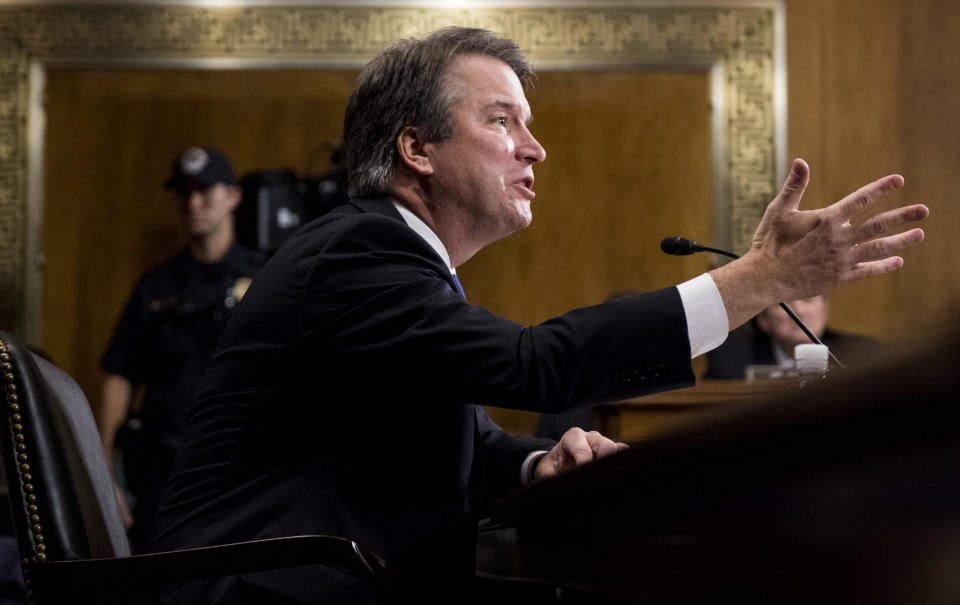House Dems Finally Ask For Millions Of Brett Kavanaugh’s Hidden Documents
The House Judiciary Committee on Tuesday requested the National Archives produce millions of documents from Supreme Court Justice Brett Kavanaugh’s time in President George W. Bush’s administration.
Committee Chairman Jerry Nadler (D-N.Y.) and Rep. Hank Johnson (D-Ga.), chairman of a subcommittee with oversight of federal courts, made the request. Activist groups have long been demanding an investigation into Kavanaugh’s background, claiming the Senate Judiciary Committee failed to carry one out before approving his nomination last year.
The committee is seeking Kavanaugh’s records from his time in the White House counsel’s office from 2001 to 2003 and in his role as staff secretary from 2003 to 2006. It is pursuing these records as part of its review of ethics and transparency legislation for the Supreme Court, according to the request letter. The letter further states that the committee’s request also relates to its oversight of judicial misconduct and the organization of the Supreme Court.
“This is a critical first step in conducting the real investigation of Brett Kavanaugh that Senate Republicans prevented from happening last year,” Brian Fallon, executive director at Demand Justice, the liberal judicial activist group leading calls for an investigation into Kavanaugh, said in a statement. “We applaud House Democrats for demanding such documents and urge that they be turned over immediately and released to the public in full.”

During Kavanaugh’s confirmation hearings, Senate Judiciary Committee Chairman Chuck Grassley (R-Iowa) requested documents from the nominee’s time in the White House counsel’s office. He later withdrew that request after receiving some, but not all, of these documents.
The documents that were released to the committee had been reviewed and filtered by Bill Burck, a private attorney, Republican Party apparatchik and longtime friend of Kavanaugh’s. This was an unprecedented situation: The National Archives, not a partisan operative who is friends with the nominee, normally reviews these documents for disclosure. Burck even personally asserted executive privilege to prevent documents from being released, an action normally reserved for White House lawyers.
Democratic Party lawmakers and related activist groups bemoaned the opaque process as it happened. They questioned whether committee Republicans and Kavanaugh’s allies were hiding documents that could reveal his positions on crucial issues like abortion, torture and warrantless wiretapping.
A new investigation into the undisclosed documents could reveal inconsistencies in his testimony or force questions about whether he should recuse from future cases.
The National Archives must turn over documents requested by a congressional committee chairman with relevant oversight authority. The White House, however, could intervene and declare privilege over the documents to prevent their disclosure, or it could slow the process down in a number of ways that could have the effect of blocking disclosure.
But that only goes so far. Kavanaugh has a lifetime appointment, and President Donald Trump does not. If a Democrat wins the presidency in 2020 and the party maintains control of at least one branch of Congress, there would be no means to block disclosure of these Kavanaugh documents.
Related Coverage
Ruth Bader Ginsburg Praises Kavanaugh, Gorsuch As 'Very Decent And Very Smart'
83 Ethics Complaints Against Justice Brett Kavanaugh Dismissed Permanently
Trump’s Largely White And Male Appellate Judges, In One Photo
Love HuffPost? Become a founding member of HuffPost Plus today.
This article originally appeared on HuffPost.

